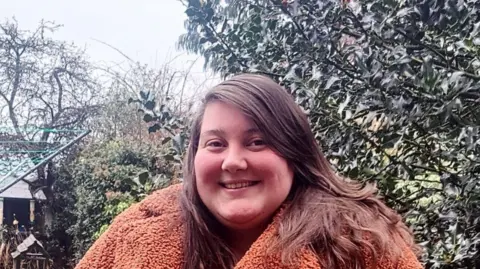Overhaul needed to prevent benefit claimants suffering harm, MPs say
52 minutes agoMichael BuchananSenior Social Affairs Correspondent BBC News

 Family pictures
Family picturesMPs are calling for a change in the law to prevent benefit claimants from suffering harm at the hands of the government department that is meant to help them.
Several people have died in recent years after failures by the Department for Work and Pensions (DWP).
A cross-party committee of MPs says new legislation and “deep-rooted cultural change” at the DWP are needed to protect vulnerable clients.
A DWP spokesperson said the government was “currently consulting on a new safeguarding approach” which “genuinely supports vulnerable people”.
In recent years, the deaths of Errol Graham, Philippa Day and Kevin Gale have seen the DWP widely criticized for its handling of vulnerable clients.
- Mr Graham, who suffered from severe mental health problems, weighed just four-and-a-half stone when he died in 2018 after his benefits were wrongly stopped
- In 2019, a coroner found that Ms Day took her own life after her benefits were cut in error
- Kevin Gale died by suicide in 2022, having been diagnosed with severe depression and anxiety, exacerbated by his universal credit application
In Mr Gale’s case, the coroner highlighted “that current DWP procedures may not be practical for those with mental health illness and can exacerbate symptoms”.
The inquest heard of the number and length of DWP forms that claimants were required to complete, the length of telephone queues for DWP advisers, and the requirement to travel long distances for appointments for people affected by mental health illness.
Thursday’s report, from the Work and Pensions Select Committee, reveals the deaths of at least 274 people have been investigated internally by the DWP in since April 2015.
Such inquiries – Internal Process Reviews – are launched when there is an allegation that a case has been mishandled by the DWP which has potentially contributed to serious harm or a safeguarding concern.
During the same period, 58 reviews were opened into cases where customers suffered harm – but the MPs said the scale of the failings was likely to be greater.
“That people continue to face harm after dealing with the DWP is a self-evident failure of safeguarding in the system,” said committee chair Debbie Abrahams MP.
“Until recently, getting people back into work to cut costs had been prioritised over providing support and care for vulnerable people,” Ms Abrahams added.
“We heard evidence that the process of engaging with the DWP… too often led to mental distress.
“Deep-rooted cultural change of the DWP is desperately needed to rebuild trust and put safeguarding at the heart of policy development.
“Introducing a statutory duty to safeguard vulnerable claimants for the department is a fundamental part of this.”
A new law, holding the secretary of state accountable for safeguarding clients, would ensure that everyone saw it as their responsibility to protect claimants, says the committee.
‘Nasty and traumatic’
Carl, 44, a former roofer from Croydon, south London, said his first interaction with the DWP “felt quite a nasty and traumatic experience”.
He had struggled for 18 months with a degenerative back condition that had left him with mobility issues and constant pain, requiring strong painkillers.
In 2018, after trying a variety of less manual roles, such as plastering and carpet fitting, he realised he could no longer hold down a job.
He applied for universal credit, his first ever benefit application, which led to an appointment at his local job centre.
Carl says the work coach was “very dismissive and patronising”.
“He said: ‘If you want money from us, you’re going to have to jump through these hoops.’
“It almost felt like he was trying to imply that I was being dishonest and I was putting it on.
“It was a very uncaring response. I wanted support to get a non-manual job.”
‘Absolutely life-changing’


Shannon Johnstone, 28, who found herself sleeping rough about seven years ago before turning to the DWP for help, said the recommendations “are going to be absolutely life-changing for people… if they’re done right”.
At the start of her claim, she remembers the DWP told her: “We can’t help with your homelessness,” which she says was understandable but off-putting.
She does not know if they referred her case to homeless organisations as she was never told. Now she welcomes the recommendation to include the views of people with lived experience in the design, planning and implementation of DWP policy.
“People who have gone through the system understand what it feels like to be interviewed by a [DWP] inspector,” says Shannon who now works for the charity, Expert Link.
“They understand what it’s like to gather lots of paperwork, so by including them in the design of the system, it’s going to work so much better.”
In a statement, the DWP said the government was committed to protecting the people who use its services “and fixing the broken welfare system we inherited so it works for those who need it”.
“That’s why we are currently consulting on a new safeguarding approach and our reforms will improve people’s lives and rebuild trust, by establishing an approach that genuinely supports vulnerable people.”
The spokesperson added that the government was encouraging people to have their voices heard in the consultation and help build a system “that works better for all”.